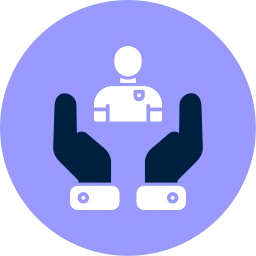Dialysis Technician Course
Dialysis Technician: This position is also known as a renal dialysis technician , hemodialysis technician, or nephrology technician.
- Basic understanding of biology and interest in lab sciences is helpful
- Minimum Qualification: 10+2 in any stream
- Age: Minimum 17 years at the time of admission
- Duration: 2 Years
- Internship: 6 Months
Career Opportunities
This position needs the Medical Lab Technician to collaborate with doctors, pathologists, and scientists. Empathy, attention to detail, dexterity, critical thinking, tenacity, and the capacity to operate in a challenging setting are all essential characteristics.

Hospitals (Government & Private)

Pathology
Labs

Diagnostic
Centres

Blood
Banks

Research
Laboratorie

Pharmaceutical
Companies

Public Health
Labs

Primary Healthcare
Units
Job Roles Include
Dialysis technicians operate machines and provide dialysis to patients suffering from acute or chronic renal failure. They operate mostly in hospitals, clinics, dialysis centers/facilities, some nursing homes, assisted living facilities, and long-term care facilities under the direction of physicians and nurses. They are in charge of operating, cleaning, and sterilising the dialysis machines. Dialysis technicians offer crucial medical, technical, social, and emotional assistance to patients, as well as vital information on patient situations to nurses, doctors, and other medical personnel.

Medical Lab
Technician

Phlebotomist
Assistant

Lab
Assistant

Clinical Data
Entry Operator

Pathology
Technician

Quality Control
Assistant in Lab

Histology
Technician

Hematology
Technician
Training Outcomes
- Demonstrate understanding of Renal Failure (ARF & CRF) and its treatment.
- Demonstrate pre-dialysis patient evaluation.
- Exhibit dialyzer extracorporeal blood circuit priming and machine setup for dialysis treatment.
- Demonstrate aseptic AVF/AVG cannulation and dialysis start-up.
- Showcase aseptic acute vascular access catheter care and dialysis start-up.
- Display alarm processing and constant monitoring of the patient and equipment during the procedure.
- Demonstrate aseptic decannulation and catheter management following dialysis stop.
- Exhibit careful infection control practises.
- R.O. Water treatment plant operation and maintenance.
- Exhibit machine disinfection techniques.
- Show how to maintain a dialysis machine.
- Demonstrate manual and automated dialyzer reprocessing (Operating RENATRON, INTERFACE Module & RENALOG-RM software)
Showcase your courteous and strategic communication skills, grooming abilities, professional etiquettes, and leadership traits.
Placements in Top Companies








FAQ's
Q1. What are the eligibility criteria for paramedical courses at SPMI India?
Most diploma and certificate courses require a minimum qualification of 10th or 12th pass, depending on the program. Some advanced courses may require a science background. Please refer to the individual course page for specific requirements.
Q2. Are the courses approved or recognized by any authority?
Bachelor’s degree programs offered through Emversity are officially recognized and designed in collaboration with industry leaders. Students enrolled in the Emversity program have the opportunity to pursue a B.Voc. or B.Sc. degree through partner universities that have empanelled Emversity as their official training partner. This unique model ensures you receive the best of both worlds — hands-on, industry-relevant training along with a recognized academic degree.
Q3. Does SPMI India provide placement assistance?
Absolutely. We offer 100% internship and placement support. With our strong network of hospitals, labs, and diagnostic centers, we ensure our students have access to the best career opportunities after course completion.
Q4. Can I apply online for admission?
Yes, we offer an easy online admission process. You can fill out the application form on our website or request a call back from our counselors to guide you through the process.
Q5. Is there any entrance exam required for admission?
No, most of our diploma and certificate courses do not require an entrance exam. Admissions are granted based on eligibility and availability of seats.
Student Testimonials




